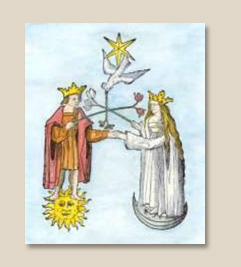
Image courtesy of ARAS
Being a couple can offer love, comfort, support, pleasure, and security but it is also a situation in life, through its very intimacy, that has the potential to become most troubling. People come for help as a couple when they find that they are having:
- difficulty communicating with each other
- sexual problems
- conflicts over finances
- excessive anger or abuse
- excessive withdrawal by one or both parties.
Sometimes these problems are related to changes in the relationship when the couple brings children into the mix or when children leave home, when there is infidelity, or when there is any major loss or other significant change. Generally, it can help to have a forum for discussing problems together when one finds that repeated attempts to work things out at home have not produced the desired or needed results.
To set up an appointment please contact me by phone at (510) 207 1082 or send an email to me via the contacts page.
The main goal of my work with couples is to address obstacles to the developmental process, freeing the potential of the couple for continuing and deepening the relationship on their own. My approach is practical, systemic and relational. “Practical” means that I work with problems that are brought for resolution through a dialogical process where we look together at the problem(s), the couple’s patterns of interaction and communication, and the roots of these patterns in each person’s family of origin. What is practical about this? The focus is on bringing relief, restoring a sense of well-being, and finding ways to connect more deeply with one another. I can assist in reaching mutually satisfying agreements about how each party can contribute to solving problems. “Systemic” means that being a couple is not an isolated phenomenon and all couples live within a matrix of other relationships: with children, parents, other relatives, friends, work, culture and society. The network of relationships can offer support or bring additional complications. “Relational” means that I work with couples from a basis of understanding that problems in living together often arise from a complex network of factors including conscious and unconscious dynamics that are often carried over from each person’s experience growing up in their family of origin. These experiences form certain pre-existing patterns that are often repeated in adult relationships, where each partner finds himself or herself cast into ways of being that are linked to how they were treated or what they saw in other relationships in the family while they were growing up. When these patterns can be identified there is the potential for further differentiation. At the same time, we are not simply captives to the past but also shaped in relation to conscious and unconscious plans for our adult lives. In other words, when we can recognize how the troubling ways we and our partner are behaving is connected to parts of an early family history, and connect this to the directions we can take in our adult development, then we have a chance to see our present day partners more truthfully and realistically, and to change problematic interactions.